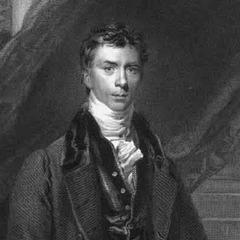Francis Bacon Quotes - Page 9
I work for posterity, these things requiring ages for their accomplishment.
Francis Bacon, James Spedding, Robert Leslie Ellis, Douglas Denon Heath (2011). “The Works of Francis Bacon”, p.532, Cambridge University Press
Francis Bacon (1819). “The Works of Francis Bacon: Baron of Verulam, Viscount St. Alban, and Lord High Chancellor of England”, p.350
Francis Bacon (2016). “New Atlantis and The Great Instauration”, p.58, John Wiley & Sons
Francis Bacon (2016). “Novum Organum”, p.13, Jazzybee Verlag
Francis Bacon (2012). “The Great Instauration”, p.30, Simon and Schuster
Essays "Of Revenge" (1625)
'Essays' (1625) 'Of Truth'
"Francis Bacon, 9. Laus, Existimatio". "Hoyt's New Cyclopedia Of Practical Quotations", pp. 647-649, 1922.
Essays "Of Studies" (1625)
Francis Bacon, David Mallet (1740). “The Works of Francis Bacon, Baron of Verulam, Viscount St. Alban, Lord High Chancellor of England ...: With Several Additional Pieces, Never Before Printed in Any Edition of His Works. To which is Prefixed, a New Life of the Author”, p.351
Hope is the most beneficial of all the affections, and doth much to the prolongation of life.
Francis Bacon, Basil Montagu (1844). “The Works of Francis Bacon, Lord Chancellor of England: With a Life of the Author”, p.495
Francis Bacon, Robert Leslie Ellis, William Rawley (1861). “The philosophical works of Francis Bacon, with prefaces and notes by the late Robert Leslie Ellis, together with English translations of the principal Latin pieces”, p.456
Francis Bacon (1854). “The Works of Lord Bacon: Philosophical works”, p.96
Travel, in the younger sort, is a part of education; in the elder, a part of experience.
'Essays' (1625) 'Of Travel'
'Essays' (1625) 'Of Fortune'
'Cogitationes de Natura Rerum' Cogitatio 5 in J. Spedding (ed.) 'The Works of Francis Bacon' vol. 3 (1857) p. 22 (Latin) and vol. 5 (1858) p. 426 (English translation)
1625 Essays, no.9 'Of Atheism'. See Berkeley 79:7.
Fame is like a river, that beareth up things light and swollen, and drowns things weighty and solid.
'Essays' (1625) 'Of Praise'
There is no vice that doth so cover a man with shame as to be found false and perfidious.
Francis Bacon, Richard Whately (1858). “Essays: With Annotations by Richard Whately”, p.13




